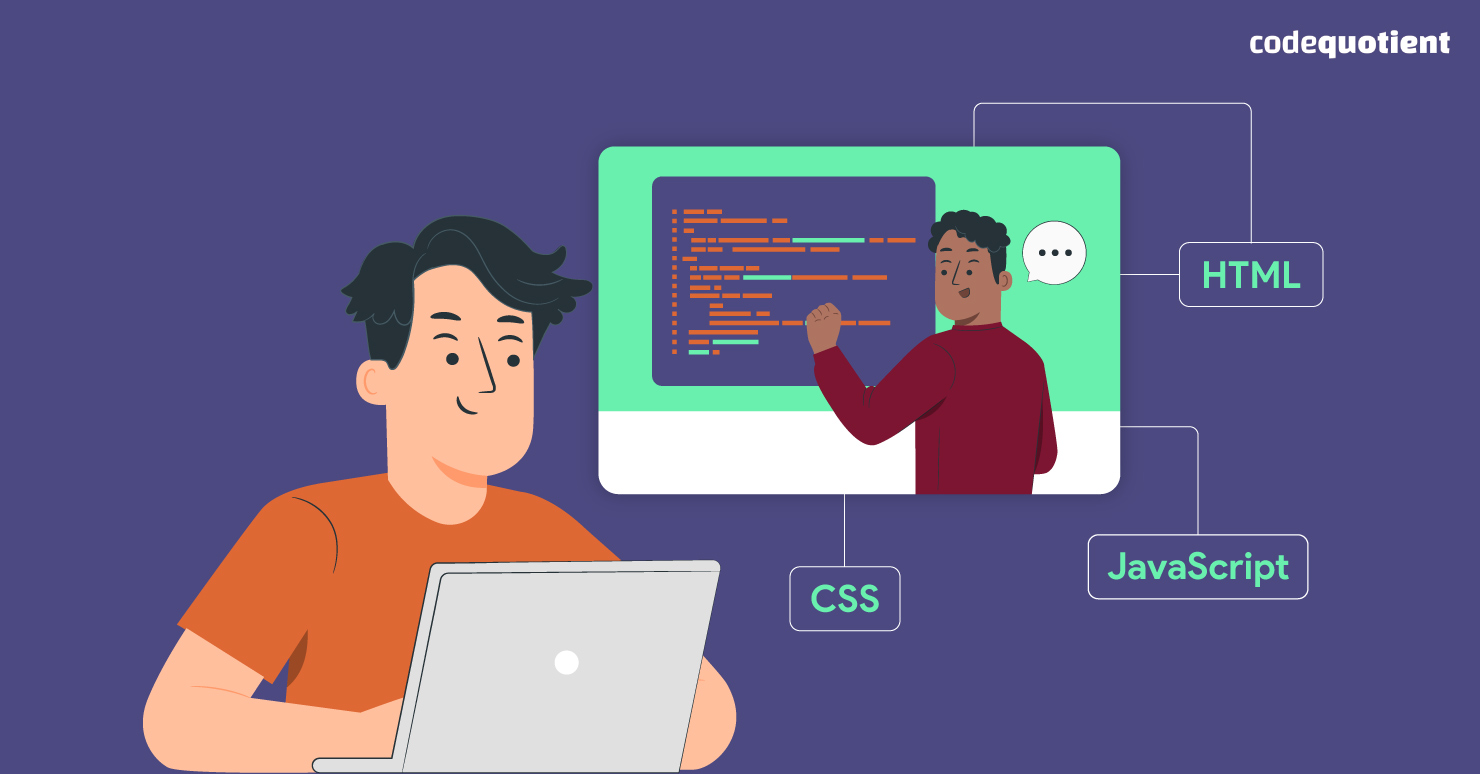As a student considering a web development career, you may wonder if a front-end developer course is enough to start your journey.
With the rise of online learning platforms and the increasing demand for web developers, the market is overflowing with options for learning front-end development. But is it enough to launch a successful career in web development?
Let’s find out.
What to Expect From Your Front-End Developer Course?
Front-end development refers to the visual and interactive aspects of a website with which users interact. This includes the website’s design, layout, and functionality, such as buttons, forms, and navigation. Front-end developers are responsible for creating the user interface and ensuring it is visually appealing and user-friendly.
While a front-end developer course is an excellent starting point, it is not enough to make you a complete web developer. The web development field is much broader and includes other essential aspects such as back-end development, database management, and server-side scripting.
What Does a Front-End Developer Course Cover?
A front-end developer course typically covers HTML, CSS, and JavaScript technologies. These are the building blocks of a website, and learning them is critical for front-end development.
Furthermore, front-end developers must also understand how websites work, how they are built, and how they interact with users.
A front-end developer course may cover some of these concepts, but a more in-depth understanding can only be achieved through hands-on experience.
What Does a Front-End Developer Course Not Cover?
However, a front-end developer course does not delve into the server side of web development, which is where back-end development comes into play.
Back-end developers use programming languages such as PHP, Ruby, and Python to build and maintain the server side of a website.
Are HTML, CSS, and Javascript Important?

HTML, CSS, and JavaScript form the building blocks of front-end web development.
HTML provides the structure and content of a website, CSS provides the styling and layout, and JavaScript provides interactivity and dynamic behaviour.
These technologies have been around for several decades and have undergone many updates and improvements. They are widely used and well-supported by browser vendors and the web development community.
However, as the complexity of web applications has increased, developers have to rely on additional tools and technologies. The need for responsive design, dynamic behaviour, and better user experiences prompted the development of front-end frameworks. Some popular front-end frameworks include React, Angular, Vue, and Ember.
A front-end developer course that focuses on HTML, CSS, and JavaScript is an excellent place to start for anyone interested in web development.
However, it is also essential to keep learning and exploring front-end frameworks.
What Are Front-End Frameworks?
Front-end frameworks provide a set of tools, libraries, and components that make it easier to build complex and sophisticated applications.
These frameworks provide a higher level of abstraction over HTML, CSS, and JavaScript and allow developers to build applications faster and with fewer lines of code.
Front-end frameworks also provide a more structured approach to development and help ensure consistency across different projects. This can be particularly useful for larger teams of developers working on complex applications.
What Is to Be Done: HTML, CSS, Javascript, or Only Front-End Developer Course?
The answer is that both are important, and it’s essential to have a solid understanding of HTML, CSS, and JavaScript to use front-end frameworks effectively.
Learning HTML, CSS, and JavaScript will give you a solid foundation in front-end development and make it easier to learn front-end frameworks.
You’ll also be better equipped to understand how the different components of an application fit together and how to build and debug applications more effectively.
On the other hand, learning front-end frameworks will give you the skills to build more complex and sophisticated applications. You’ll be able to use a higher level of abstraction and will have access to a range of tools, libraries, and components that make it easier to build applications.
Parting Notes
In conclusion, a front-end developer course is an excellent starting point for those interested in web development. However, it is not enough to make you a complete web developer.
If you’re serious about a career in web development, you will need to continue your learning journey and expand your skillset to include back-end development, database management, and server-side scripting.
It’s important to remember that web development constantly evolves, and new technologies are continually being introduced. As a web developer, it’s crucial to stay up-to-date with the latest developments and continuously improve your skills.
For expert guidance, resources, and personalised mentorship, the learning and career platform CodeQuotient is your destination.
We also offer SuperCoders Program, an internship that will equip you with project-based learning for a rewarding IT career.
Talk to us to learn more!




